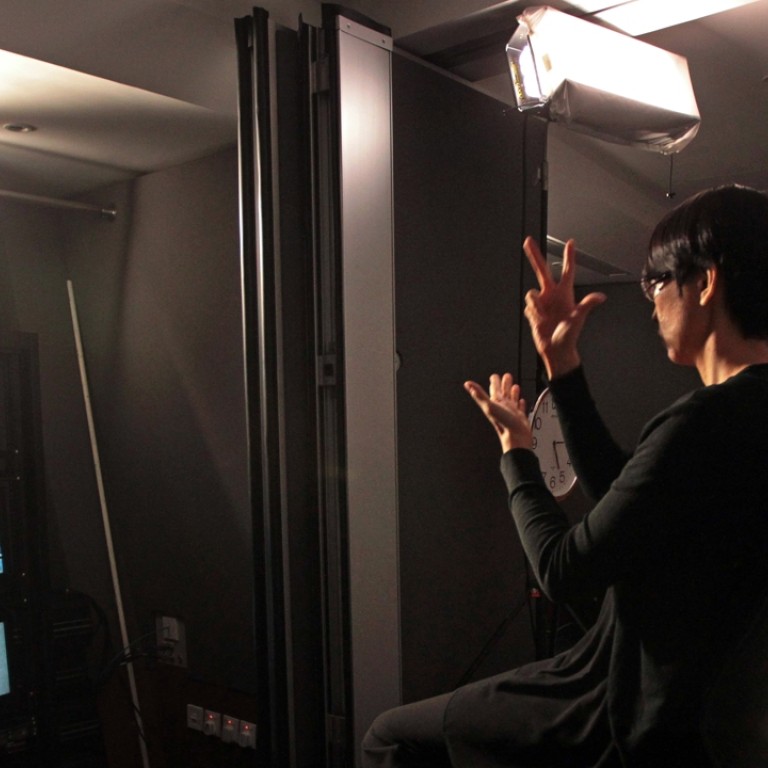
Gesture politics: meet the sign language team that bring Legco discussions to Hong Kong’s deaf
Head of city’s sign language centre reveals the challenges of interpreting complicated financial and business terms and praises chief executive CY Leung for having a ‘good speed’.
Facing a television and a camera in a tiny room, they could possibly be the city’s most attentive audience of the weekly Legislative Council meetings.
Dressed entirely in black, the five sign language interpreters stationed in the legislature have helped the city’s some 100,000 deaf people to follow the latest stand-offs between government and lawmakers – from the controversy of the long-delayed and budget-busting high-speed railway to the Beijing-decreed political reform.
Poems are cited, songs are sung and occasional swear words are sometimes heard in the chamber, as the relationship between the executive and the legislative branches gets worse.
Watch: How do sign language interpreters translate Hong Kong lawmakers' swear words?
Timmy Chan, who is in charge of the Hong Kong Society for the Deaf’s Sign Language Centre, says translating politicians’ speeches is way more challenging than working in a hospital or community centre.
“Legco meeting contents are usually more complicated and not that related to daily life, especially the business or financial terms that we are not so familiar with,” she says.
“So we need to pay attention to news and current affairs more often and sit together before the meeting to discuss and agree on how to signal special terms.”
If there was a lesson the five-strong team learnt in recent years, it would be the importance of taking turns.
When they first time worked on the financial secretary’s annual budget, the team assigned just two interpreters – rotating shifts every half hour.
“We did not know there would be so much important information. Copies of the speeches were not provided beforehand and we had to interpret what we heard in an instant,” Chan recalls. “We were exhausted and did not recover until the afternoon.”
Since the budget, the team now works in 15 minute shifts.
While lawmakers have always condemned the “sophistry” of Leung Chun-ying, the sign language interpreters do not find the speeches of the chief executive – whom Chan adds have a good speed – the toughest to translate.
“[The speeches] by the Financial Services and the Treasury Bureau are the most difficult in terms of sign language interpretation … because they tend to talk about things we do not usually come across in our daily life,” she says, adding that the discussion on the Labour and Welfare Bureau, which focuses more on livelihood issues, is the easiest to handle.
Chan says working in Legco and other places has given all members of the team a high level of job satisfaction as they are making a difference for the deaf.
“Without us, deaf people would not know what Legco is discussing and what is happening in Hong Kong,” she says.

